
Click over Logo to Home Page
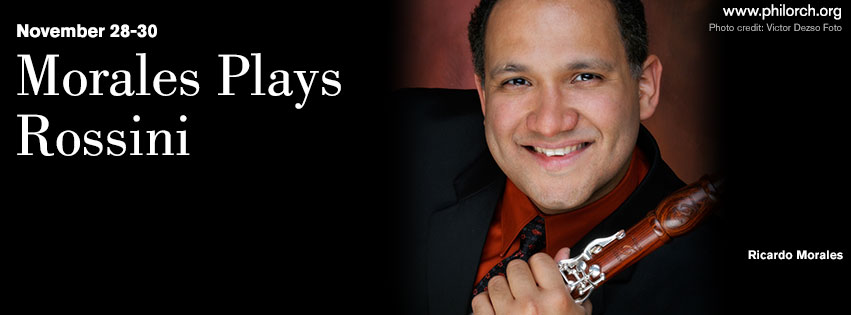
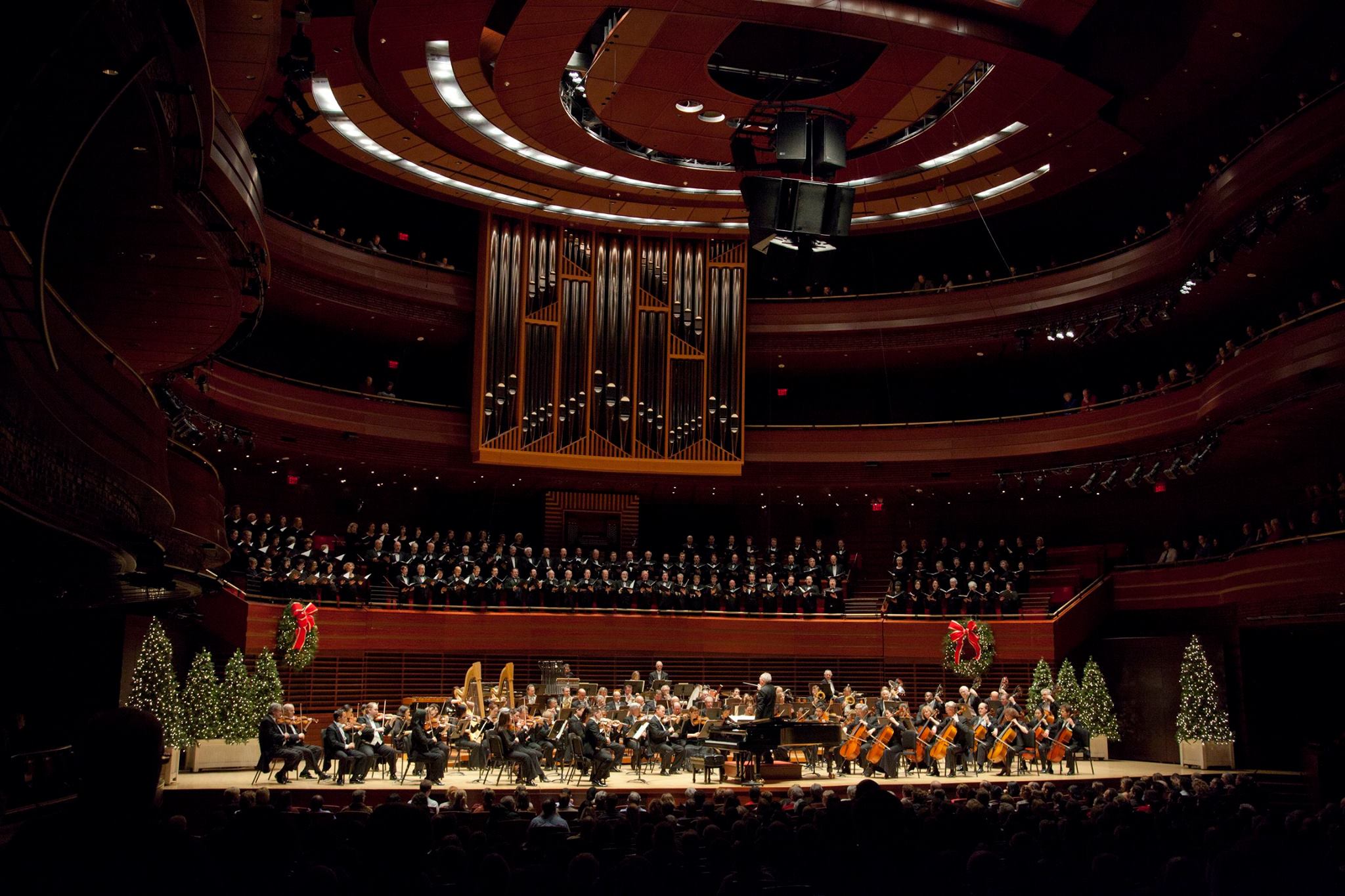
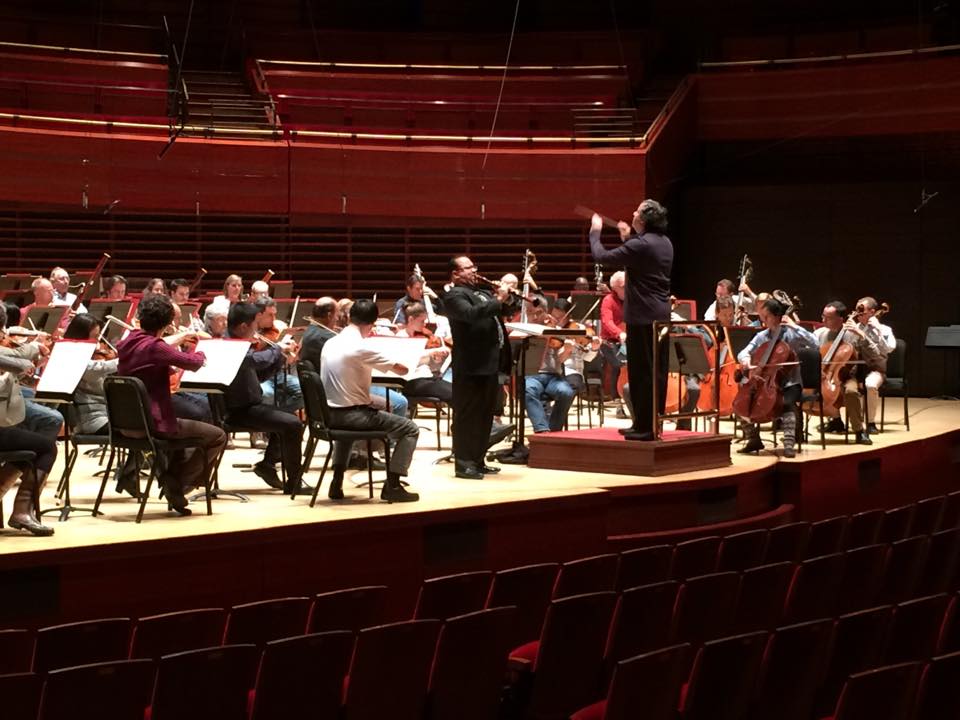
28 - 30 November 2014
VIP Ricardo Morales Performs Debussy Premiere Rhapsody and Rossini's Introduction, Theme & Variations with the Philadelphia Orchestra
Philadelphia, Pennsylvania USA
A momentous performance with VIP Ricardo Morales, performing the above showcase Clarinet works with this world class Orchestra during their regular season concerts, and Ricardo also performing inside the Orchestra with the rest of the program including Rimsky Korsikov's Cappricio Espagnole and more, demonstrates the incredible virtuosity and flexibility of their star Clarinet principal. As his biography indicates below, he has the perfect background experience having played principal at the Metropolitan Opera Orchestra in New York and knowledge of the Opera Orchestra repertoire, and having been an invited principal at the Chicago Symphony and the New York Philharmonic, he stands as one of the great Clarinetists performing today. He is active also as a supreme chamber artist, and teaches at the Curtis Institute in this city. A review from the Philadelphia Enquirer is below:
It was Pied Piper night at the Philadelphia Orchestra. The audience Friday at Verizon Hall gladly would have followed clarinetist Ricardo Morales out the doors and to any destination he proposed.
Morales, principal clarinet since 2003, explored shadings of his instrument's eloquence in Debussy's Premiere Rhapsodie and brought the audience to its feet with the cascades of notes and theatrical flourishes that characterize Rossini's Introduction, Theme and Variations.
Although the sheer jubilance and charm of the Rossini evoked that ovation, it was in the subtle and thoughtful Debussy piece that a range of the soloist's gifts could be savored. The first note he played had no beginning but seemed to have been in the air and only needed our awareness. Written as a test piece for Paris Conservatoire hopefuls, the music asks colors, nuance, pinpoint intonation, and a sense of phrase that moves beyond meter. To hear Morales round off a quiet phrase ending, to glow in the low register and inject pure but modulated tones in upward moving lines was to hear an essay in impressionist style.
Then came Rossini. The piece works with parts of arias from the operas La Donna del Lago and Moise, and Morales found a way to balance the mock dignity of the exposition of those operatic airs with the headlong coloratura of the variations. Listeners followed him into technical intricacies and hair's-breadth flights.
How did Rossini's contemporaries manage while playing less evolved instruments? The work must have been heard as music of the future when first played. Played now, as by Morales, it bursts with humor, sly dashes through tonalities, and operatic postures. He was supported by an orchestra caught up in the moods. Conductor Juanjo Mena was attuned to the soloist's vital signs and organized apt color, pace, and enthusiasm right up to the clarinetist's Mach 2 final run.
Mena surrounded all this magic with two Russian standards that sounded ordinary in this context. Rimsky's Capriccio Espagnol, out of the repertoire for four decades, was brought back, and Tchaikovsky's Symphony No. 4 closed the evening without erasing the effect of Morales' performance. Neither piece was explored very deeply, details refreshed or spirit reinvented. The symphony had its muscles in place. Mena urged the music ahead without asking for much inner shading, and built it all toward a thunderous brassy close.
The Capriccio Espagnol sounds like a period piece now. Its Russian-ness crowds against the Spanish dance meters, and, despite the stylish violin solos by David Kim, seemed quaint.
Interestingly, Morales took his seat in the orchestra for the symphony, the only principal wind player on stage. When Mena had the section leaders stand at the end, the audience cheered for Morales.
It was Pied Piper night at the Philadelphia Orchestra. The audience Friday at
Verizon Hall gladly would have followed clarinetist Ricardo Morales out the
doors and to any destination he proposed.
Morales, principal clarinet since 2003, explored shadings of his
instrument's eloquence in Debussy's Premiere Rhapsodie
and brought the audience to its feet with the cascades of notes and theatrical
flourishes that characterize Rossini's Introduction, Theme
and Variations.
Although the sheer jubilance and charm of the Rossini evoked
that ovation, it was in the subtle and thoughtful Debussy piece that a range of
the soloist's gifts could be savored. The first note he played had no beginning
but seemed to have been in the air and only needed our awareness. Written as a
test piece for Paris Conservatoire hopefuls, the music asks colors, nuance,
pinpoint intonation, and a sense of phrase that moves beyond meter. To hear
Morales round off a quiet phrase ending, to glow in the low register and inject
pure but modulated tones in upward moving lines was to hear an essay in
impressionist style.
Then
came Rossini. The piece works with parts of arias from the operas
La Donna del Lago and Moise,
and Morales found a way to balance the mock dignity of the exposition of those
operatic airs with the headlong coloratura of the variations. Listeners followed
him into technical intricacies and hair's-breadth flights.
Mena
surrounded all this magic with two Russian standards that sounded ordinary in
this context. Rimsky's Capriccio Espagnol,
out of the repertoire for four decades, was brought back, and Tchaikovsky's
Symphony No. 4 closed the evening
without erasing the effect of Morales' performance. Neither piece was explored
very deeply, details refreshed or spirit reinvented. The symphony had its
muscles in place. Mena urged the music ahead without asking for much inner
shading, and built it all toward a thunderous brassy close. The
Capriccio Espagnol sounds like
a period piece now. Its Russian-ness crowds against the Spanish
dance meters, and, despite the stylish violin solos by David Kim, seemed quaint.
Interestingly, Morales took his seat in the orchestra for the symphony, the only
principal wind player on stage. When Mena had the section leaders stand at the
end, the audience cheered for Morales.
Read more at
http://www.philly.com/philly/entertainment/20141201_It_was_Morales__night_with_the_orchestra.html#MKFpEsWA20R1yXcv.99
Ricardo Morales is one of the most sought after clarinetists of today. He joined The Philadelphia Orchestra as principal clarinet in 2003. Prior to this he was principal clarinet of the Metropolitan Opera Orchestra, a position he assumed at the age of 21, under the direction of James Levine. His virtuosity and artistry as a soloist, chamber, and orchestral musician has been hailed and recognized in concert halls around the world. He has been asked to perform as principal clarinet with the New York Philharmonic, the Chicago Symphony, and at the invitation of Sir Simon Rattle, performed as guest principal clarinet with the Berlin Philharmonic. He also performs as principal clarinet with the Saito Kinen Festival Orchestra, at the invitation of Seiji Ozawa.
A native of San Juan, Puerto Rico, Mr. Morales began his studies at the Escuela Libre de Musica along with his five siblings, who are all distinguished musicians. He continued his studies at the Cincinnati Conservatory of Music and Indiana University, where he received his Artist Diploma.
Mr. Morales has been a featured soloist with many orchestras, including the Metropolitan Opera Orchestra, the Chicago Symphony, the Cincinnati Symphony, the Indianapolis Symphony, the Seoul Philharmonic, and the Flemish Radio Symphony. During his tenure with the Metropolitan Opera Orchestra he soloed under the baton of Mr. Levine in Carnegie Hall and on two European tours. He made his solo debut with The Philadelphia Orchestra in 2004 with Charles Dutoit and has since performed as soloist on numerous occasions.
An active chamber musician, Mr. Morales has performed in the MET Chamber Ensemble series at Carnegie Hall’s Weill Recital Hall with Mr. Levine at the piano; at the Santa Fe Chamber Music Festival, the Philadelphia Chamber Music Society, the Seattle Chamber Music Summer Festival, and the Saratoga Chamber Music Festival; on NBC’s The Today Show; and with the Chamber Music Society of Lincoln Center. He has performed with many distinguished ensembles, such as the Juilliard Quartet, the Pacifica Quartet, the Miró Quartet, the Leipzig Quartet, and the Kalichstein-Laredo-Robinson Trio. He has also collaborated with Christoph Eschenbach, André Watts, Emanuel Ax, Jean-Yves Thibaudet, James Ehnes, Gil Shaham, and Kathleen Battle. Mr. Morales is highly sought after for his recitals and master classes, which have taken him throughout North America and Europe. In addition, he currently serves on the faculties of Temple University and the Curtis Institute of Music.
Mr. Morales’s performances have been met with critical acclaim. The Philadelphia Inquirer hailed his appointment to The Philadelphia Orchestra, stating that “… in fact, may represent the most salutary personnel event of the orchestra’s last decade.” He was praised by the New York Times as having “ … fleet technique, utterly natural musical grace, and the lyricism and breath control of a fine opera singer.” Mr. Morales was also singled out in the New York Times review of the Metropolitan Opera’s production of Berlioz’s Les Troyens, describing his playing as “exquisite” and declaring that he “deserved a place onstage during curtain calls.”
Mr. Morales’s debut solo recording, French Portraits, is available on the Boston Records label. His recent recordings include performances with the Kalichstein-Laredo-Robinson Trio and with the Pacifica Quartet, which was nominated for a Latin Grammy Award. Mr. Morales has joined forces with internationally recognized master acoustician and instrument maker Morrie Backun to create MoBa, a company of top-of-the line clarinets and clarinet accessories, including mouthpieces, bells, and barrels.
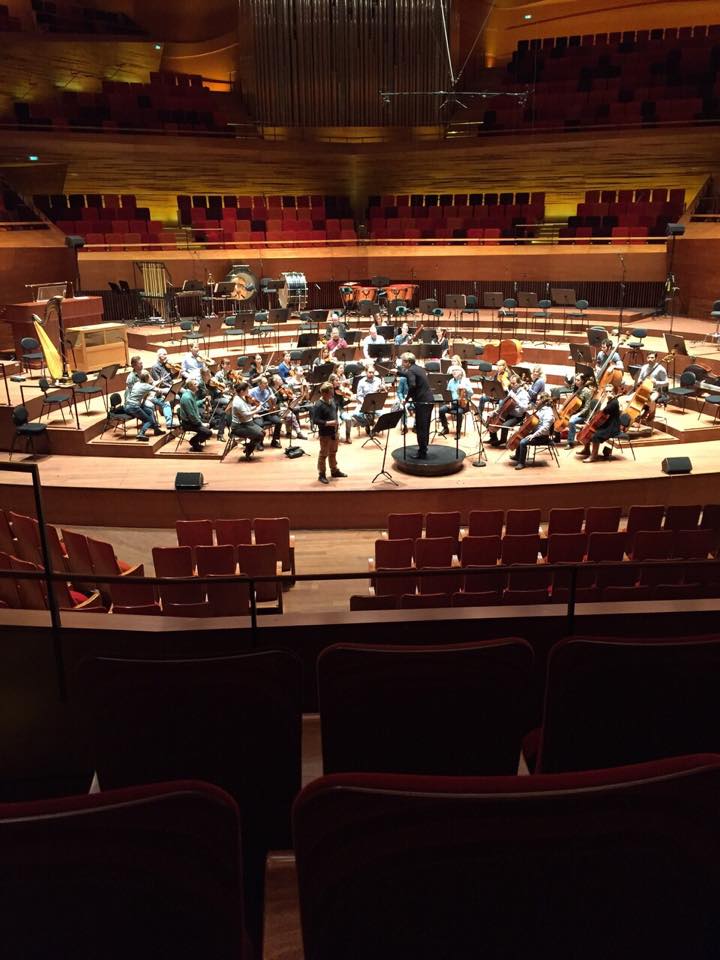
27 - 28 November 2014
VIP Wenzel Fuchs Soloist performing Mozart Clarinet Concerto K 622 with the Danish National Symphony Orchestra and Internationally Broadcast throughout Europe
Copenhagen, Denmark
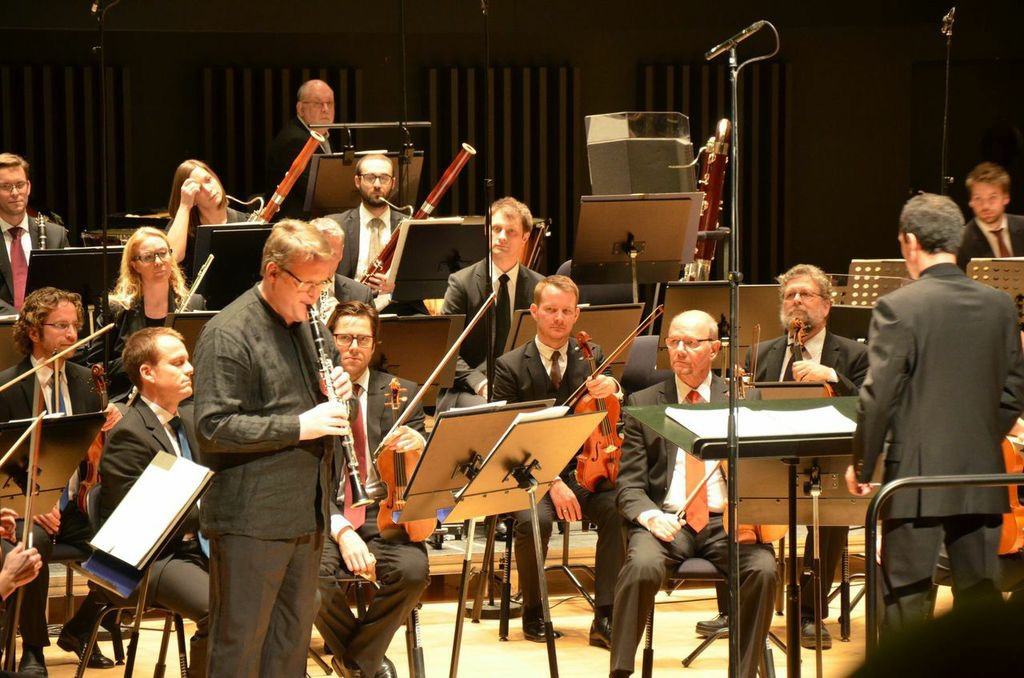
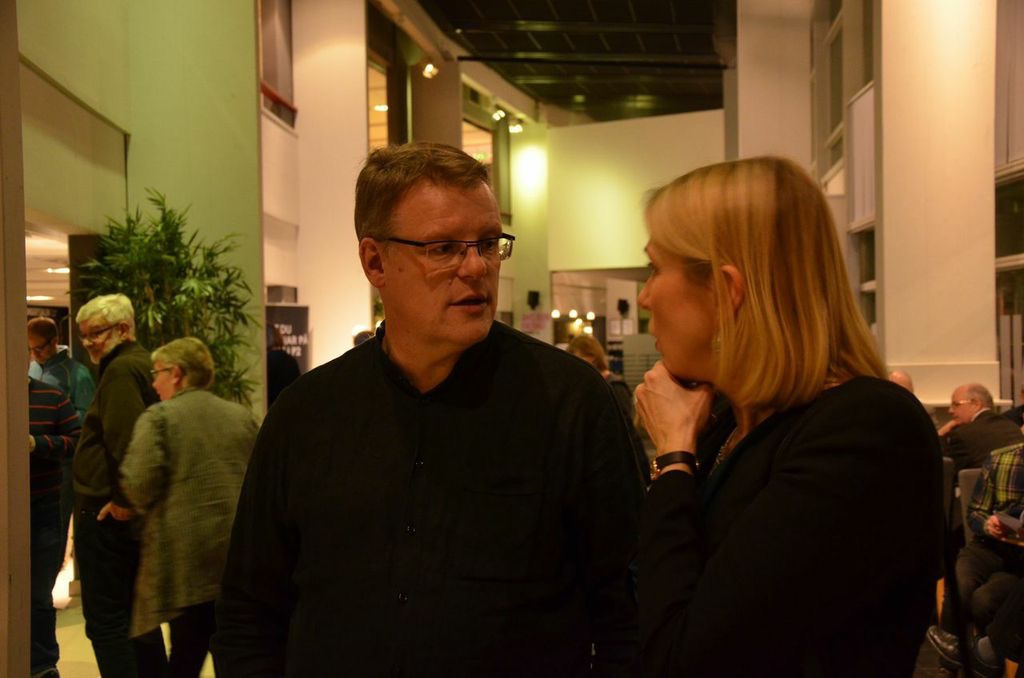

27 November 2014
World Premiere - Clarinet Concerto : Verdure, by Katarina Leyman - Soloist VIP Stefan Harg - Norrlansoperan Symphony Orchestra - Conductor - Damian Lorio
Stockholm, Sweden
A new Premiere in Stockholm performed by VIP Stefan Harg, a noted icon in Sweden and past Director along with Kjell Stevennson of the ICA ClarinetFest 2001, was enthusiastically acclaimed this week with the Norrlansoperan Symphony Orchestra - Conductor - Damian Lorio.
26 - 30 November 2014
Senior VIP Stanley Drucker Master Class hosted by Legend Clarinetist Guy Dangain - at École Normale de Musique
Paris, France
On a European trip to Paris, Stanley Drucker and Naomi engaged an invitation and gave a Master Class hosted by legend French Clarinetist Guy Dangain at the École Normale de Musique Paris for students. During this week, visits were made to the major firms including Buffet-Crampon in Mantes de Ville, Vandoren, and Selmer. Although just a casual tour, it was noteworthy given the past associations the Druckers have had with all, and the prestigeous element of legend importance. As the photo gallery indicates, it was a noteworthy visit.
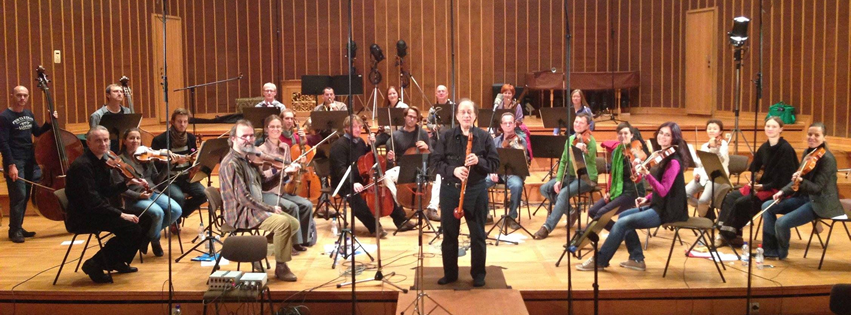
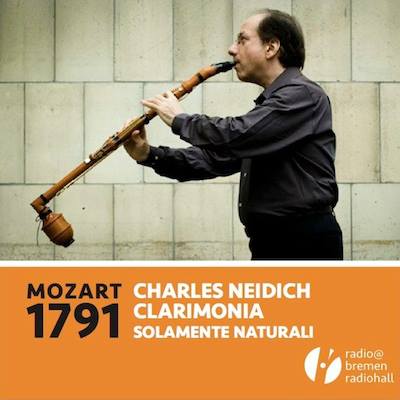
24 November 2014
"CLOSEST TO THE HUMAN VOICE" - VIP Charles Neidich revisiting Mozart Clarinet Concerto in the new album MOZART 1791
New York City USA
Mozart and Družecký for clarinet, basset clarinet, basset horns and orchestra -
The fine selection of the music and the musicians of the CD "Mozart 1791" is a
great pleasure
clarinetist and any listener who has joy to discover. The
album comprises concerts and chamber music
with historic reproductions of instruments of the clarinet family. "Mozart 1791"
is presented by Charles
Neidich, who plays the clarinet and conducts the orchestra, in collaboration
with
Ayako Oshima, with the
ensemble Clarimonia, and with the orchestra
Solamente Naturali Bratislava
and its founder and leader Miloš Valent.for
Clarinetists and any listener who has a joy to discover. The album
comprises concerts and chamber music with historic reproductions of instruments
of the Clarinet family produced by
Schwenk &
Seggelke of Bamberg, Germany. This new recording, presented by Charles
Neidich, who performs and conducts the Orchestra, in collaboration with his wife
VIP Ayako Oshima, with the
Ensemble Clarimonia, and with the Orchestra
Solemente Naturali Bratislava and its leader and founder Mikos Valent.
New information coming soon
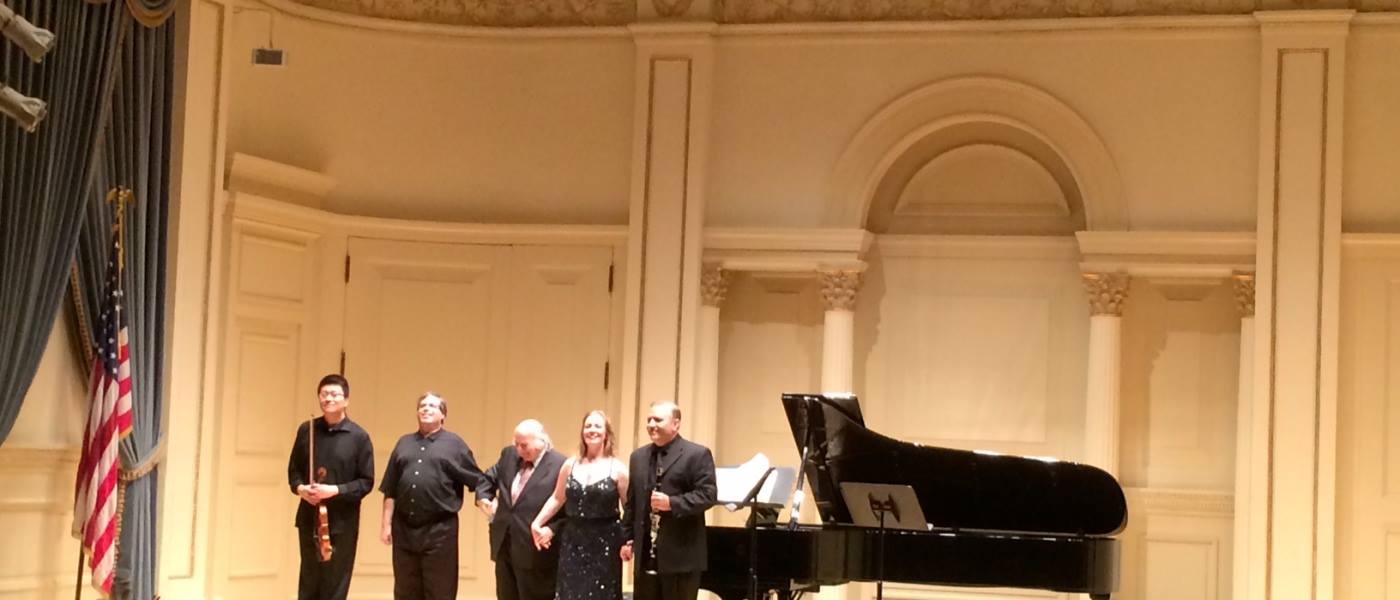
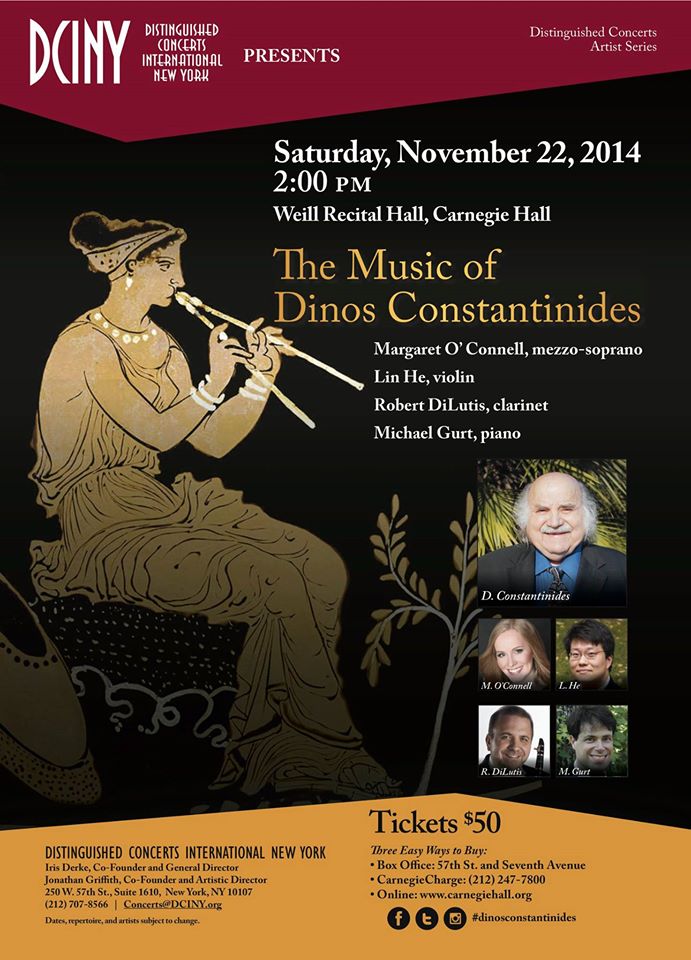
22 November 2014
Distinguished Concerts International New York (DCINY) presents “The Oracle at Delphi”: The Music of Dinos Constantinides in Review - with VIP Robert DiLutis, Professor at the University of Maryland at College Park, and Colleagues at Weill Recital Hall at Carnegie Hall
New York City USA
If my Greek philosophy serves me right, the inscription over the
entrance to the oracle at Delphi proclaimed its most important maxim before the
seeker even entered to ask his real question. That saying, “Know thyself,” aptly
describes Greek-American composer Dinos Constantinides. He knows his heritage,
style, and compositional craft very well. In this all-Constantinides program, he
was privileged to have four extremely capable, committed, and evidently
enthusiastically involved artists to bring his works to life. They are all
faculty members of Louisiana State University, where he is Boyd Professor, the
highest academic rank.
Constantinides’ work is conservative, approachable, and generally tonal. He
exemplifies Hindemith’s saying “There are only twelve tones, we must treat them
with care.” It is gratifying to find a composer in academia who is not writing
serially, but is mining the simple expressive power of the twelve half-tones of
our traditional chromatic scale. His hallmarks are: motific unity and good,
audible counterpoint, pleasing instrumental sonorities, and a mix of lyricism
and jauntiness, even humor. The novice listener can follow the discourse
immediately without disorientation.
The first work, Mountains of Epirus, dedicated to the memory of
his mother and father, established his general processes, with clear
counterpoint in the “At the Village” movement, and a lively motoric seven meter
in the “Country Fair” second movement. It was beautifully played, by violinist
Lin He and pianist Michael Gurt. Glimpses of modal melodies peek through, though
they are probably not quotes, but original outgrowths of his immersion in native
folklore. Next came the Midnight Fantasy II for clarinet and piano, whose
genesis owes to a small cluster of notes from a Nat King Cole song. The
brilliant clarinetist Robert DeLutis, again partnered by Mr. Gurt, conveyed the
“musiques nocturnes” feeling well.
Lazy Jack and His Fiddle for unaccompanied violin has the air of a children’s
piece, indeed it is based on a children’s tale, but few children would ever be
able to negotiate its virtuosic demands. Here, the motific unity lends strength
to what might be a lighter, “occasional” sort of piece. The slothful fiddler
amuses us by mistaking A-Flat for the last note of a piece in G, then the other
way around, before conclusively resolving in G. Transformations for clarinet and
piano showed an uncanny unanimity of ensemble between the two players; they were
no longer separate, but “one instrument” in thought, execution, and feeling. The
endings of movements were transfixing.
Listenings and Silences was the concluding work on the first half, sung
unaccompanied by the expressive mezzo-soprano Margaret O’Connell. It is based on
poems or poem fragments by the former Poet Laureate of Louisiana, Pinkie Gordon
Lane (1923-2008). Ms. Lane’s quietly expressive take on race issues (which
earned her no favors with the more militant black community) was evident in the
first section “A Quiet Poem,” which was sung with just enough gesture by Ms.
O’Connell. “Poem Extract” and “Listenings” were also delivered well, though an
unaccompanied voice is so very exposed, a few of the words were lost as she
ascended into the upper reaches of her otherwise rich voice.
After intermission, Ms. O’Connell returned for another solo work Delphic Hymn,
whose origin was incidental music for a production of Sophocles’ Oedipus Rex.
This was a wordless vocalise, and since no one really knows what Greek music
from the second century BC actually sounded like, the claim that it incorporates
fragments from the actual antique Delphic Hymn can’t be substantiated. But the
work does have atmosphere, although its dimensions were too slight to contain
the full horror and anguish of the Oedipus drama.
Music for
Violin and Clarinet contained rapid interchanges between the instruments, as
they negotiated Prologue, Dialogue, Monologues I and II, and an Epilogue. There
was humor here, as the clarinet got the “last word” in during the Dialogue.
Fantasia for Solo Clarinet showcased the tonal color range of the marvelous Mr.
DiLutis. Idyll, for violin and piano, followed. In my understanding, an idyll is
an extremely happy, peaceful, or picturesque episode or scene, often an
idealized, unsustainable one. This work seemed rather unhappy, meandering
through a number of minor keys before finding some sense of resolution.
The final work, The Oracle at Delphi, is scored for the unusual trio combination
of violin, clarinet, and piano. The work is based on a modal Greek “folk-like”
tune which is developed among the players, reflecting Constantinides’ heritage.
His music does not shout at you. It is sensitive, and this work tended to
“withdraw” at the end, making a somewhat somber ending for a very honorable
afternoon.


16 November 2014
American Chamber Ensemble
presents concert of Music by Composer-in-Residence at Hofstra University
Jonathan Russ
at Christ and St. Stephen's Church
New York City USA
Jonathan Russ is an emerging composer with a unique voice,
blending contemporary concert music with elements of indie rock and musical
theater. He is the winner of the 2014 MA-ASTA Composer's Competition for his
piece House and is participating in the New Music On The Point Festival, Cortona
Sessions, SoundSCAPE Festival, and Atlantic Music Festival this Summer. A native
Long Islander, Jonathan is currently pursuing a Masters at The Boston
Conservatory, studying with Andy Vores, and has studied privately with Dalit
Warshaw. More about him at
http://www.jonathanrussmusic.com/bio/.
The American Chamber Ensemble explores the great chamber music literature for
clarinet and piano in combination with strings, woodwinds and voice and presents
performances featuring world-class artists. ACE consists of the finest freelance
musicians in the New York area and has been cited by critics for their superb
presentations of chamber masterworks. Their latest CDs on Elysium are American
Clarinet Treasures, featuring core members of ACE performing works by George
Kleinsinger, Virgil Thomson, Daniel Gregory Mason, Elliott Carter, Douglas Moore
and Gary Schocker, with guest artist Stanley Drucker and The American Chamber
Ensemble Plays Peter Schickele, which features five of this modern master's most
important chamber works. For the latest ACE concert listings, updates and
information, log on to http://americanchamberensemble.com/.
14 - 16 November 2014
International Clarinet Association - ICA Mid-America Festival - The Ohio State University, Columbus - VIP Caroline Hartig, Director
Columbus, Ohio USA
In collaboration with The International Clarinet Association - ICA, major sponsors Buffet Group USA, Vandoren, Herbert Wurlitzer, from Neustadt A. d. Aisch, Germany and several others, this major Clarinet event covering three days of near round the clock performances, lectures, master classes, and a Clarinet Choir preparation and concert conducted by Professor from the University of Florida Mitchell Estrin took place with resounding success, hosted and organized by VIP Caroline Hartig, with special guest and Alumnus Richard Stoltzman, a star icon in the Clarinet world, having performed and recorded with Orchestras worldwide, and performed with major chamber ensembles almost too numerous to name. Several other VIP Artists from Europe were featured including European Clarinet Association - ECA President and VIP Stephan Vermeersch, a world class Bass Clarinet and New Music icon, VIP Piero Vincente, virtuoso Clarinetist from Purugua, Italy, and Director of the ICA ClarinetFest held in Assisi, Italy two years ago, Nicola Bulfone and Luca Saracca from Germany, and several Clarinet and Woodwind Ensembles including the Chicago Clarinet Ensemble, led by VIP Rose Sperrazza and David Tuttle, the Magnolia Trio from the University of Mississippi, the Onyx Clarinet Quartet, and a Potpourri Recital with several Professors from all over the country.
Master Classes conducted by Richard Stoltzman and Piero Vincente covered several hours each in intensive coaching of students. A special seminar was held regarding the Bassett A Clarinet and its evolution in regards to the Mozart Clarinet Concerto K622 with documentary presentation and demonstration by Nicola Bulfone using a Wurlitzer Reform Boehm Bassett A Clarinet, and performance of the Mozart Clarinet Quintet. Another presentation with extensive performance and Homage to Ciro Scarponi, a famous Clarinetist, teacher, and composer in Italy and a proponent of New Music, covered with presentation and performance by Luca Baracca, Nicola Bulfone, Piero Vincenti, and Caroline Hartig. Performance level was superlative on all levels.
Given how busy and simultaneous some of the events and seminars were, exhibitions of instruments, accessories, music, and repair checks were available during this weekend with major firms, including the sponsors Buffet-Crampon, Selmer, Daddario, Loeff and Pfeiffer, Vandoren, Music and Art, Buckeye Music, and more. The above galleries give a glimpse of the magnitude of this Festival. In the past years, Dr Hartig, while at Michigan State University, held an annual Clarinet Spectacular event each year, and this event is an expansion of this endeavor which has been a major mecca for aspiring players and students of all levels, and not enough accolaides and credit can be expressed. A noteworthy happening this year was the appearance of Professor Emeritus Dr Donald McGinnis, who came to see this event with the Stoltzman concert. He was a major Professor here at Ohio State University, and suceeded by VIP James Pyne, who was on faculty for 37 years, and now succeeded by Caroline Hartig.
8 - 14 November 2014
Ostrava, Czech Republic
It is our pleasure to welcome you to the newly founded Czech Clarinet Association (CCA). The foundation of the association was not easy, but already now it is possible to become a member. We believe that together we will be able to form a strong clarinet community, since the association is formed and run not only by the clarinet professors of the three Czech music universities, but also by the members of the leading Czech orchestras. This community should fulfil the main goals of the newly formed association. To achieve this, we mainly need YOU, clarinet players of all music genres and from any level of playing.
Czech Clarinet Association, member of Association of Music Artists and Scientists is a society that was founded to develop and support activities connected to the interpretation of clarinet music and to all instruments of the clarinet family (E - flat clarinet, basset horn, bass clarinet etc.) and to support creative activities with the purpose to stimulate musical, artistic, cultural and also scientific activities for members of the association. The purpose is mainly achieved through:
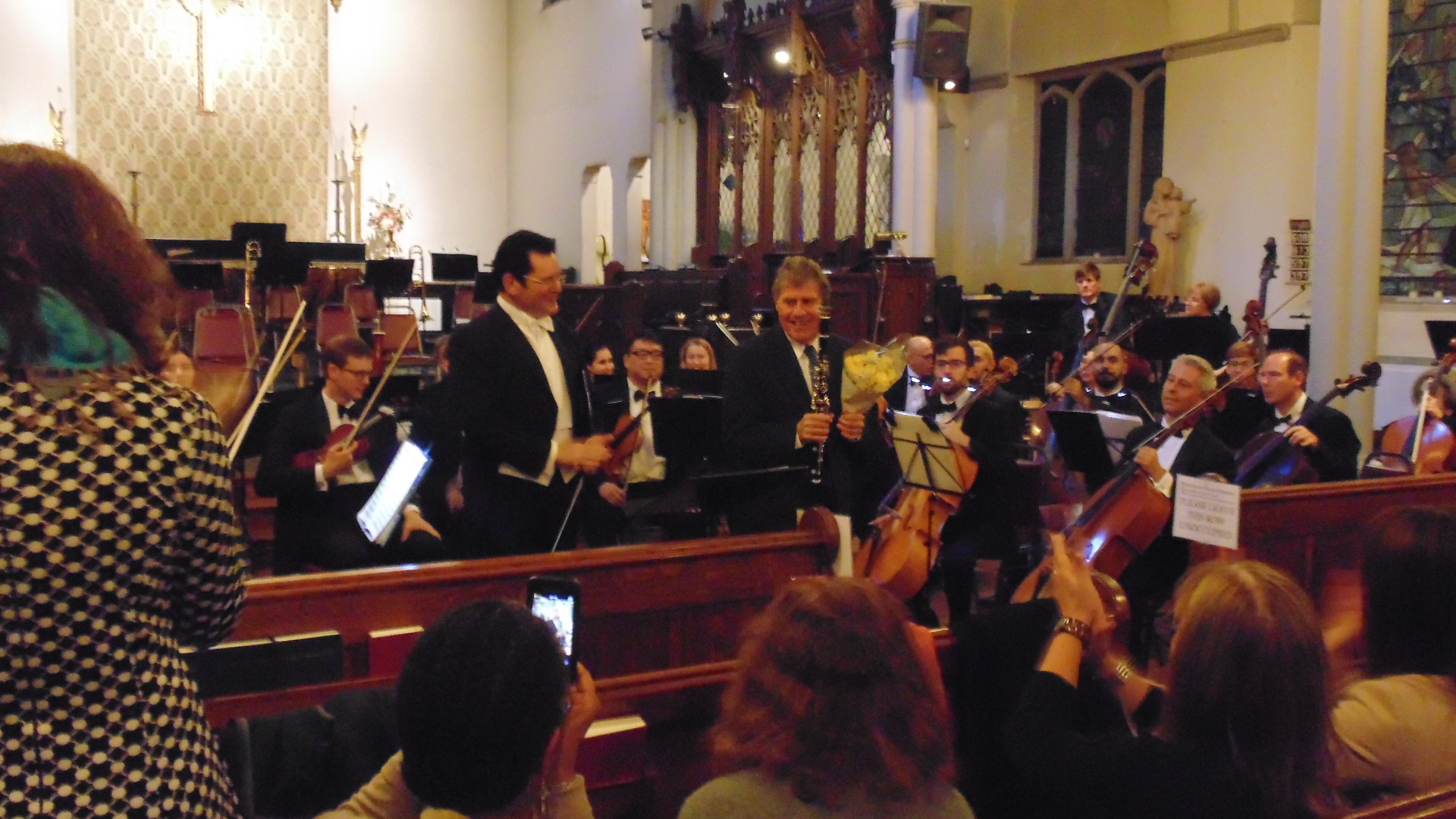
8 - 9 November 2014
Senior VIP Stanley Drucker Soloist in Performances of the Mozart Clarinet Concerto K 622 with the Park Avenue Chamber Symphony - David Bernard, Conductor - All Saints Church
New York City USA
A marvelous performance with a diverse program presented in two concerts with the Park Ave Chamber Symphony featuring legend Stanley Drucker under David Bernard, a former Clarinetist, brought standing ovations with a near sold out pair of concerts. Programs included the Nielsen Helios Overture, the Mozart Concerto and the Dvorak New World Symphony #9. Dr Drucker was presented with a special plaque in honor of his long distinguished career and noted that he was in essence the New York Philharmonic persona because of his long standing accomplishments there with 61 years in the Orchestra as principal and soloist over 200 times. Checking Dr Drucker's VIP Pages will indicate his mark in the Clarinet world, unmatched by anyone before or since. The Interview below sums up with Conductor David Bernard and him the career high points and message that Drucker gives to all players.
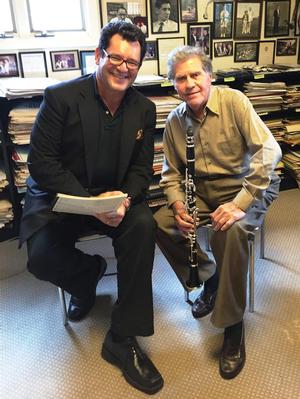
The Park Avenue Chamber Symphony kicked off its 15th anniversary season with a pair of concerts featuring the world renowned clarinetist Stanley Drucker in a performance of Mozart's Clarinet Concerto. The concerts will be held on Saturday, November 8th at 8PM and Sunday, November 9th at 3PM at All Saints Church, 230 East 60th Street between 2nd and 3rd Avenues in New York City.
Recently, David Bernard, the Park Avenue Chamber Symphony's music director, sat down with Stanley Drucker to discuss his illustrious career, Mozart and life after 60 years with the New York Philharmonic.
David Bernard: As a clarinetist growing up in the New York City area, I so fondly remember your performances with the New York Philharmonic, both live, and simulcast on TV. What are your most memorable experiences over your 60 years with the New York Philharmonic?
Stanley Drucker: There were so many. Performing the world premiere of the Corigliano Clarinet Concerto with Leonard Bernstein, recording both the Corigliano Concerto and the Nielsen Concertos, touring with the orchestra around the world. Perhaps the most memorable was performing Beethoven's Ninth Symphony in Berlin when the wall came down. That was incredible.
DB: I've listened to your Corigliano and Nieslen recordings frequently. They are inspiring. What were the greatest influences on your playing?
SD: It was Benny Goodman who inspired me to take up the clarinet when I was 10 . It wasn't so much the Jazz itself, but simply the sound that Goodman got from the instrument grabbed me from the first time I listened to his playing. When I joined the New York Philharmonic at such a young age, I was somewhat overwhelmed by the incredible musicians around me. Working with Concertmaster, John Corigliano, Sr., Principal Oboist Harold Gomberg and Principal Horn James Chambers, each rehearsal and performance was its own masterclass for me. The experience of working with the greatest orchestral musicians and conductors of my time had a huge influence on my growth as a musician.
DB: The list of conductors you have worked with is astounding. Please share your thoughts on the conductors who have led the New York Philharmonic during your tenure.
SD: I had the privilege of working with many great conductors. Zubin Mehta was an excellent conductor who was always prepared and made great eye contact with the musicians of the orchestra. Dimitri Mitropoulos was a great performer, musical mind, and humanitarian. Pierre Boulez was wonderful -- he taught us how to play music we had never seen before. And then there was Leonard Bernstein. Lenny was truly remarkable. Everything he touched was a brilliant success -- inspired, eventful, warm and exciting, as both a conductor and a composer.
DB: Did Lenny ever discuss writing a clarinet concerto for you?
SD: While Lenny was just too busy to write a clarinet concerto, he did arrange for John Corigliano to write one, and then insisted on conducting the premiere! I think that the Corigliano Concerto is the hardest piece ever written for the clarinet. The Nielsen concerto has been considered the hardest. But the Corigliano has passages of great technical difficulty, very fast staccato passages and high notes played super soft. And in the slow movement, it seems like you're playing forever without breathing. It takes a lot of strength-but it always gets a standing ovation.
DB: Clarinetists are so fortunate to have the Mozart Clarinet Concerto in their repertoire. It is the crowning achievement of Mozart's prolific concerto canon -- a sublime, introspective work that never fails to please. Most clarinetists encounter this work relatively early in their career, and it becomes a mainstay of their musical lives. What were your earliest experiences with the Mozart Concerto and what are your thoughts on how the work should be approached?
SD: My first performance was when I was 15 years old with the National Orchestral Association conducted by Leon Barzin. One Summer in the 1980s I performed the Mozart Concerto in all Five Boroughs of New York City as part of the New York Philharmonic outdoor concerts! In terms of interpretation, there's no absolute right or wrong. I want to see the audiences' faces and hear the applause. It is important to have the sensitivity and imagination to determine what a piece should sound like, to try to create some kind of atmosphere, but to never play it through twice exactly the same way. You try for the impossible, a chemistry that will express something you want to express.
DB: After 60 years with the New York Philharmonic, including 10 music directors, 191 solo appearances and 10,200 concerts, you deserve a rest -- But you keep a busy schedule! What is next for you?
SD: I am very busy performing both solo and chamber music concerts and teaching master classes. I am enthusiastic about teaching, as a way to give back to the next generation of students. I try instill in my students the importance of listening. All musicians should listen to themselves and the others around them. To play in an orchestra, you have to have concentration, When you actually play in performance you have to forget about fingerings, mouthpieces, reeds and all the other mechanics. You have to focus on making music and interacting with your fellow musicians.
8 November 2014
3rd Annual United States Navy Band Clarinet Day with Acclaimed Guest Faculty - Laura Grantier, Director
Washington, DC USA
In its 3rd year, under the dedicated endeavor of Laura Grantier, a Clarinetist in this great Band, and supported by the Clarinet Section and the Commander Captain Brian O Walden, this event was successful in all areas of interest, with Guest VIP Artists from the Washington National Symphony Mark Gallagher, VIP Eugene Mondie, Mitchell Estrin, who conducted a Reading rehearsal with the Mass Clarinet Choir, and conducted the Navy Band Clarinet Choir at the Finale, and Clarinet Quartets from the Navy, Marine, and Army Band in a morning recital. A large turnout from the Washington DC area and
surounding communities attended along with exhibitions from Music firms and the Music Industry.
A major topic of interest was opportunity in the Military Band field, with discussions from the Band members about the career, audition preparation, and what the Bands are looking for in an applicant. Auditions are pre-planned with recording submission, an invitation to live audition which is behind a screen like an Orchestra audition, then the finals and a sit-in with the Band to see how compatible the applicant is. At the Premiere Band level, assignment is permanent for the whole career pending performance. Other opportunities were discussed in the regular Band field as well. Competition is very rigid given the few vacancies that become available, so that is a factor.
A session about the Alexander Technique and breathing was covered for an hour with Mark Gallagher, who demonstrated with help from a Band member. The entire day was very busy with all the enthusiasms and tryouts of equipment by all, and a chance to connect with the entire attendance. Laura Grantier and the entire Clainet Section are credited with a great day for those coming in for it.
Copyright © 1999 WKA-Clarinet.org. All rights reserved.
Revised: December 06, 2014